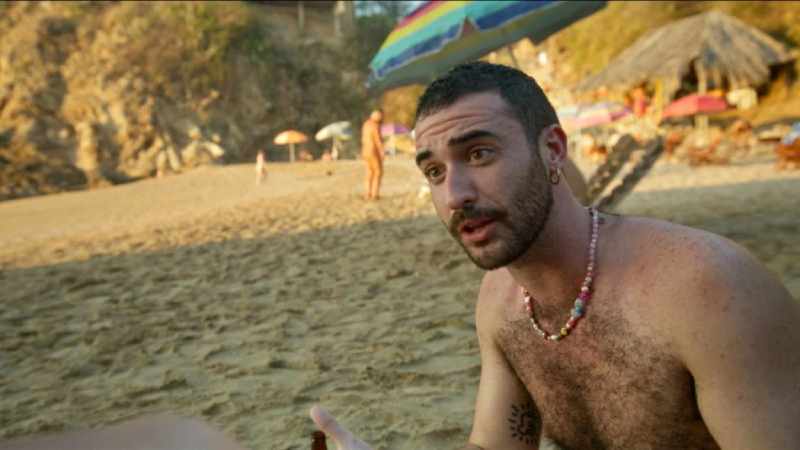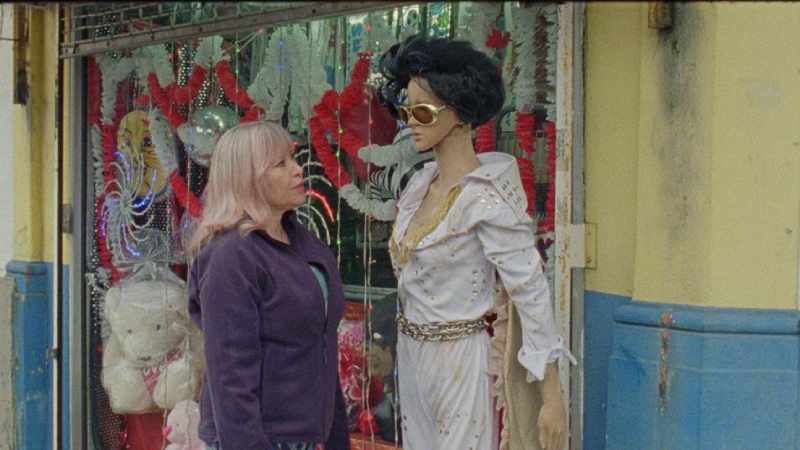




This wasn’t my first time in Munich. I visited the capital of Bavaria for the first time in December, when I showcased my very own film at Lafita, a film festival specialised in Latin cinema. This time I returned as a journalist, and for a very special occasion: the 40th anniversary of the Munich International Film Festival (Filmfest München). The event takes place for nine days between June 23rd and July 1st, screening a total of 147 films from 61 countries and every corner of the planet. This includes 43 world premieres. There are three international competition strands – CineMasters, CineVision and CineRebels – each one of them with exclusive prizes in various categories. This year’s retrospective is dedicated to 50-year-old Austrian director Jessica Hausner (including her latest film, the quirky Club Zero, which premiered last month in Cannes).
I was duly picked up and returned to the airport a few days later by a 650-horsepower Audi. The driver boasted that the vehicle was entirely electric, and that the charging points were now to be found in every corner of the city. He talked casually while reaching a mere 180kph, which is entirely legal auf der Autobahn. Audi is the official main partner of the Munich Film Festival. The company is headquartered in Ingolstadt, less than 100km from Munich (at such speed you could there in less than 30 minutes)!
Munich is a fascinating city for more reasons than one. This is where Rainer Werner Fassbinder, arguably the most important German filmmaker of all time, was born nearly 80 years ago (in 1945) and died 37 years later. I visited the final resting place of my favourite director in the tiny Bogenhausen Graveyard during my first Munich trip. This is also where Arri was founded, more than a century ago. The technology company is the manufacturer of Alexa, the dominant camera in the film industry. In case you didn’t know, you often see the world through a Bavarian lens!
…
.
A fest instead of a festival
The fact that the event takes place in the summer makes the experience even more memorable. There is no shortage of supporting events, parties and alcohol. Delegates were given a voucher with five free beers, and the opening gala had no shortage of such drinks . Artistic Director Christoph Gröner explains. “This was founded as a festival for the public and a true fest. It’s called ‘Film Fest Munich’, not ‘Film Festival'”, before repeating wholeheartedly: “It’s a fest, that’s how it started”. He then concludes: “Back in the 1980s, Munich was a very hedonistic city and one of the key factors for Munich Film Fest was to party all the way through the night. And that included the whole industry!”
Ulla Rapp, who helped to found the event alongside the late Festival Director Eberhard Hauff, spoke to me shortly after celebrating her 85th birthday: “We are a festival for the audiences, for the public”. She then tells me that festival organisers and film-goers often bring their bathing suit and jump in the River Isar, in the morning before the film marathon begins: “You should have seen the river, it runs through the English Garden, and it’s very charming. There are crowds of people. It’s a fantastic life”. She then invites me to join them next year. How could I possibly not take up on her invitation?
.
The special relationship
The Munich film Festival has always had a very cosy relationship with US cinema. Ulla explains how it all began: “Ron Holloway, a good friend of Eberhard Hauff was working for Variety, and he brought some American people to us. For instance, Dick Russell came with a retrospective of American independent film. It started with two movies in 1983, Summerspell (Lina Shanklin) and City News (David Fishelson and Zoe Zinman, 1983). That happened with a helping hand from Tim Ney, the director of the Independent Feature Project (IFP) in that decade. These two young directors of had no budget in comparison to the German young filmmakers, who needed at least $1 million in order to make a film. They did it with just $10,000! That’s why people got so excited. The independent film market became huge because 80% of the American independent films were sold to distributors or to the television stations“. Christoph has a similar view: “I would say that Munich became the most important hub for American independent, offbeat cinema in Europe for a time during the mid-1980s. That’s something that even Roger Coreman said. Richard Linklater was born as a filmmaker right here on European turf”.
Ulla notes that this has now changed, with the Festival focus moving towards other geographies: “In the beginning, the American independents were at the heart of the Festival, particularly the auteur writers. I travelled regularly to New York and Sundance. Now we have become more of a platform for new German cinema, and a place to discover German talent. It has become more difficult to get American premieres. And there isn’t as much interest for small films made with $10,000. So we now get a lot of German movies instead, particularly made for German television. Asian and Latin American films have also become very popular”. Indeed the American film that opened the Fest this year, Maryam Kershavarz’s The Persian Version, was a multi-million production. And two of my favourite films this year came from Latin America: the filthy-queer-radical metafictional dramedy Rotting in the Sun (Sebastian Silva pictured below), and the moody historical drama The Settlers (Felipe Galvez).At least one decent American indie premiered this year at the Festival: Pablo Feldman and Sophia Sabella’s Edge of Everything.

.
The British connection
The connection to British cinema is a very peculiar one. “It wasn’t so much the young and independent British filmmakers that we showed here, but instead the more well-known directors. Stephen Frears was here, and we showed My Beautiful Laundrette in 1985. We showed British films by most of the big names. Artist and filmmaker Isaac Julien premiered Young Soul Rebels here in 1991, and we’re showing the film again this Saturday, July 1st. And we showed Baadasssss Cinema [Julien] a few weeks ago at the Munich Brandhorst Museum, along with an exhibition of his art pieces. British movies have a long and important tradition in Munich”.
Programmer Julia Weigl complements: “Isaac Julien was here himself for the exhibition, which took place 10 days after he had a big retrospective at the Tate Britain. When we picked him up at the airport he told us: ‘you know, Germany partly financed the film and partly produced the film. That’s why we screened it here. And it was my first time to Munich’. A lot of special things happened in Britain in the ’80s and the ’90s”.
The 40th edition of the Festival featured the world premiere of a little gem of British cinema: Leo Leigh’s sophomore feature, the cringe comedy Sweet Sue (pictued below). Leo is the son of cinema grandees Mike Leigh and Alison Steadman.

…
.
Please visit our review archive for our full coverage of the 40th Munich International Film Festival, with 11 reviews written at the coalface exclusively for you.





















